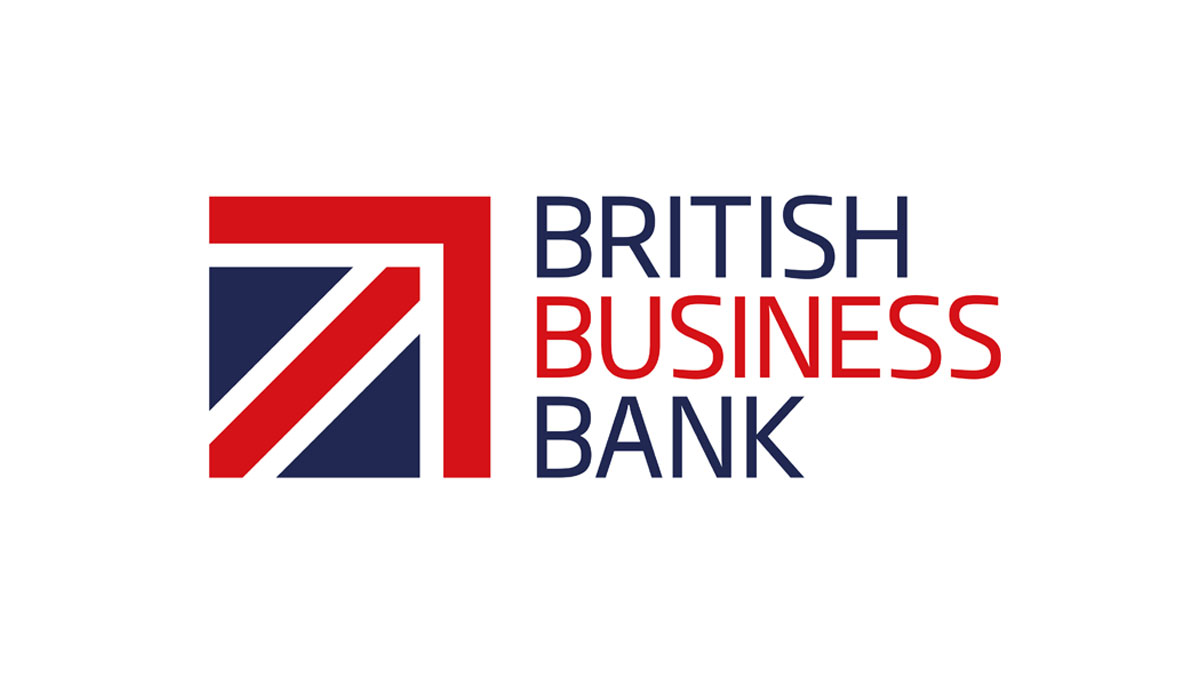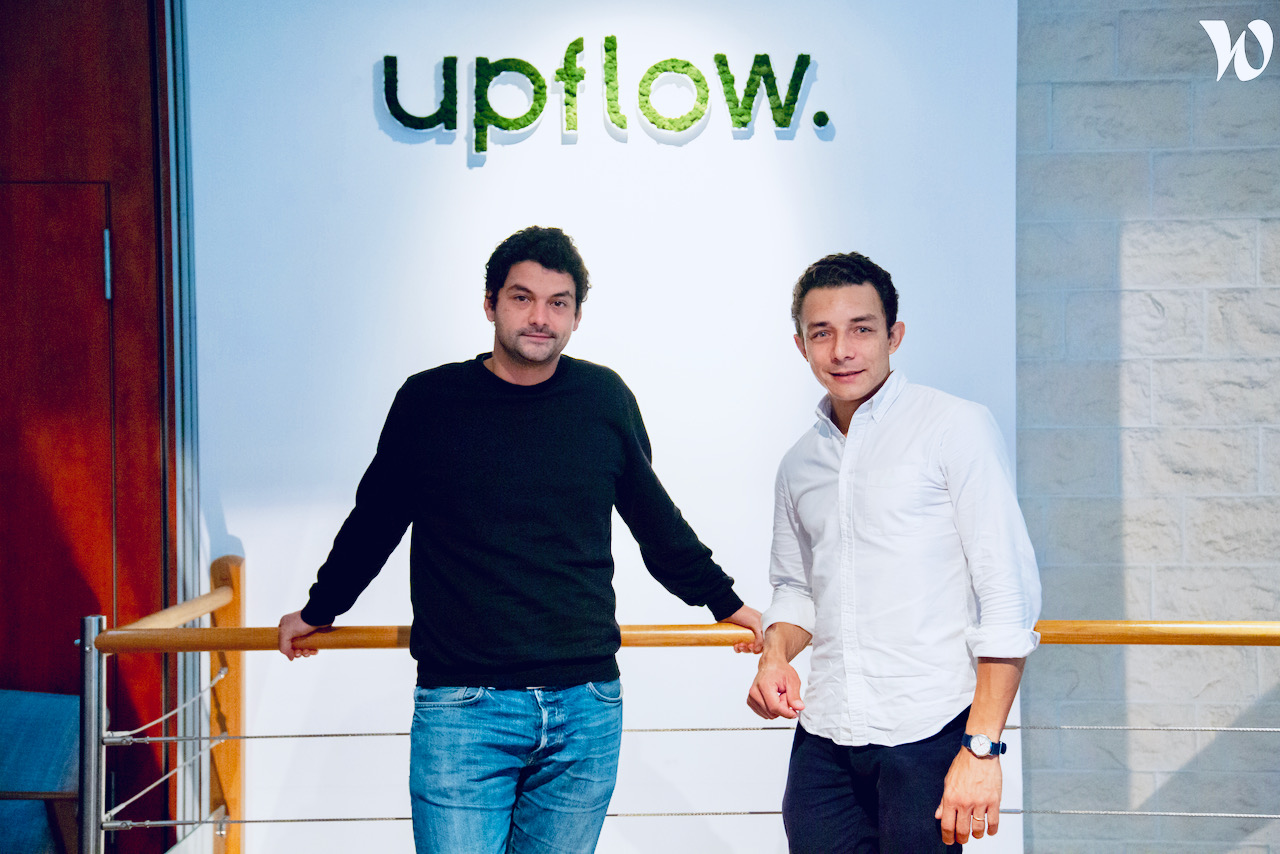Published
- 04:00 am

BlackRock and Cassini Systems, a leading provider of pre- and post-trade margin and collateral analytics for derivatives markets, announced today that the two firms have entered into a strategic partnership to integrate Cassini analytics into BlackRock’s Aladdin® platform. The integration will allow mutual clients to factor margin-based analytics into their pre- and post-trade decision-making.
Integrated into the Aladdin platform, Cassini’s margin analytics capabilities will empower traders, portfolio managers and operations professionals to better understand and control margin requirements at all stages of the trade lifecycle. This includes the ability to analyze drivers and movement in margin exposure, identify opportunities to optimize collateral, and maximize margin efficiencies across the entirety of a firm’s book of business.
“We are excited to partner with Cassini to help clients more efficiently manage their margin by leveraging analytics at multiple points during the derivatives lifecycle,” said Sudhir Nair, Head of the Aladdin Business at BlackRock. “The combination of the Aladdin platform’s derivatives capabilities with Cassini’s margin analytics will enable our clients to best utilize their derivatives and collateral operating model on Aladdin.”
The partnership builds on existing Aladdin derivatives capabilities to provide pre-trade margin comparison and collateral optimization.
“At Cassini, we’re delighted that Aladdin chose our technology for this integrated offering. Mutual clients, including BlackRock itself, will now be able to leverage all of Cassini's front-to-back margin and collateral analytics and optimization tools, natively within Aladdin. The ability to optimize and manage margin thresholds, as well as carry costs, at pre-trade time and execute post-trade margin and collateral optimization natively in the same platform represents a new step forward in the industry,” said Liam Huxley, CEO of Cassini Systems.
The announcement is part of BlackRock’s multi-year investment in the Aladdin platform’s derivatives functionality to enable clients to comply with post-financial crisis regulations, including those subject to the Uncleared Margin Rules (UMR). BlackRock and Cassini will first offer joint pre-trade initial margin capabilities in September.
Related News
- 06:00 am

The crossover and application of finance and technology (fintech) has become essential in providing financial services for both businesses and consumers today. While it experienced a decline in 2020, the UK fintech industry saw a tremendous growth of 331% in the span of a year, leading up to £2 billion in investments. With such a positive trajectory, the industry can only be expected to flourish. And as fintech businesses find ways to get ahead of the competition, marketing strategies become more important than ever. Here are three effective marketing strategies that your startup or established fintech business can utilise:
Optimise Your Platform for Mobile
Various industries continue to invest in the optimisation of websites and platforms for mobile use, and fintech is no exception. It is arguably one of the sectors where this technology is more essential as people continue to use their mobile devices to do cashless transactions. And with over a quarter of UK adults opening accounts with digital banks, more mobile banking is expected.
To optimise your finance platform, start by developing an effective onboarding process so customers immediately understand your app's value and how to use it. Ensure that they have options to personalise their preferences before smoothing out aspects of the overall user experience. Any existing content you have should also adjust to small phone screens, including text, images, icons, and videos. Lastly, don’t forget to use search engine optimisation strategies to optimise your app description, so that it’s easy for potential customers to find.
Leverage Social Media
Social media is an essential part of a marketing strategy for any brand, since it is an effective way to engage with audiences. However, it’s important to choose the right platform based on your priorities and strategy. LinkedIn is an excellent platform for fintech companies that want to engage with users looking for business-related content. So make sure that the content you’re posting is relevant to your audience.
It’s also important to post at the appropriate times. In a guide to scheduling LinkedIn posts by Later, they recommend preparing your content in advance. This will ensure that all the images are in the perfect aspect ratio for LinkedIn and that all the captions are spotless. You can even use third-party tools that can save templates for commonly used hashtags and have auto-cropping features to save more time. By regularly scheduling meaningful posts, you can tap into a professional network that can help generate leads for your fintech business. And like any other business, fintech brands can market themselves on LinkedIn and other social media platforms to get exposure, improve engagement, and provide customer service that builds trust.
Create Quality Content
Content is key to any marketing strategy. An article on The Business Journals details how crucial content marketing is in today's climate, as companies strive to keep afloat and stay ahead of the curve. A well-executed content strategy can significantly improve a business’ performance. High-quality content positions you as an expert in the field, establishing your fintech brand as a thought leader. By finding the right voice to inform your audience, your content will be more valuable, which helps build trust for your fintech brand.
Producing good content goes hand-in-hand with marketing strategies that speak to customers on a personal level. Your brand’s content should consistently communicate how your financial solutions can address the customer’s pain points, even before they realise it. The bottom line is to meet your target market’s needs and to express solutions in a clear, engaging manner.
As the fintech industry evolves, technology will continue to become faster and more flexible. Fintech companies can drive business growth further with investments in Cloud adoption to speed ahead of their competition and achieve business outcomes. Effective marketing strategies must capture the essence of how these technological advancements can provide customers with even better experiences, knowing that their finances are in safe, capable hands.
Related News
- 06:00 am

Equity investment in the UK’s smaller businesses increased by 9% in 2020 to £8.8bn, the highest amount since the Beauhurst data series began in 2011, reveals the British Business Bank’s annual Small Business Equity Tracker, published today. The strong momentum continued into Q1 2021, with the total value of equity investment in smaller businesses reaching £4.5bn, by far the highest amount ever recorded in a single quarter.
Catherine Lewis La Torre, CEO, British Business Bank, said: “The UK’s small business equity finance market had a record year in 2020 with activity ramping up in the second half. This momentum continued into the first quarter of 2021 with record breaking levels of investment – a clear sign of returning investor confidence in UK smaller businesses and the country’s economic recovery.
“The Bank supported 21% of all announced UK equity deals in 2020, and as the impact of Covid-19 continues to affect businesses across the country, the work we do and our focus on investing with purpose has never been more important. Building on the UK’s position as a science superpower, we will continue to provide the world class businesses of the future with the capital they need to start up, scale up and remain anchored in the UK.”
UK deep tech investment soars
Investment in UK deep tech companies has continued to grow rapidly in the past five years, rising 291% to £2.3bn in 2020. The number of deals also increased by 78% to 440 in the same period. This is higher than the increases seen in the number of deals in the US and rest of Europe – 66% in the US and 73% in the rest of Europe.
However, when it comes to the overall value of investment, the UK still lags behind. UK deep tech companies receive substantially smaller rounds of funding than the US. The average UK deep tech company raises £24m after six rounds of funding, compared to the £113m raised by the average US deep tech company after six rounds.
US deep tech companies received almost twice the level of investment than those in the UK, even after accounting for size differences between the two economies. Between 2018 and 2020, UK deep tech companies received investment equivalent to 0.09% of UK GDP whilst US deep tech companies received investment equivalent to 0.16% of GDP.
Future Fund: Breakthrough, a new £375m UK-wide scheme due to launch this summer, will help address the later stage equity finance gap faced by innovative UK deep tech and R&D-intensive companies.
Related News
- 03:00 am

Checkout.com, the leading cloud-based payments solutions provider, announces its largest acquisition to date of Estonian software development firm, Icefire.
Checkout.com has seen the demand for its innovative payment solutions swell to an all-time high, with transaction volume tripling in the past year. The payments company helps global enterprises achieve better performing payments to drive more revenue and deliver better customer experiences through a customizable platform. Customers of the company include some of Europe’s top companies like Klarna, Revolut, Wise
The acquisition of Icefire and their 110 technology engineers will join Checkout.com’s global technology teams to accelerate the delivery of key products and features. The Tallinn office will become Checkout.com’s second-largest engineering hub, after its headquarters in London, UK. The investment will also serve Checkout.com’s merchants with in-market expertise, to empower Checkout.com’s merchants to scale easily in more global markets and achieve optimal payments performance. Many leading Estonian-based technology businesses are already powered by Checkout.com’s platform, including Wise, Monese and Bolt.
Ott Kaukver, Chief Technology Officer at Checkout.com, said: “Icefire has an outstanding track record of building complex, modular financial systems over the past 18 years. Their proven experience is complementary to what we are building at Checkout.com, to empower the enterprises with better payments.”
The Tallinn-based consultancy has extensive experience developing financial services solutions for both the public and private sectors in its 18-year history. It has worked for brands such as Skype, Swedbank, CoopPank and The Republic of Estonia’s Tax & Customs Board. Most recently, it supported the development of Estonia’s COVID-19 app, HOIA. Icefire's team bring first-hand experience in building complex end-to-end financial solutions that will bolster Checkout.com's growth.
Checkout.com’s growth has accelerated over the past 12 months, as merchants shift their attention to digital commerce. To fuel this product and market growth, Checkout.com has invested heavily in its technology teams, targeting a 60% increase in technology and product employees in 2021.
Related News
- 08:00 am

British Patient Capital comments on the British Business Bank’s Small Business Equity Tracker which reveals the average pre-money valuation of a growth stage private company reached over £100m. At £100.8m in 2020 this is an increase of 92% compared to 2019. In growth stage tech companies, the increase on 2019 levels was more pronounced, rising by 102% to reach £124m.
Ian Connatty, Managing Director, British Patient Capital comments: “According to the British Business Bank’s Small Business Equity Tracker, the average valuation of UK growth stage tech companies raising capital increased by over 100% compared to 2019, demonstrating strong investor confidence in UK tech, and an increased availability of capital to support companies achieve scale while remaining private. This increase has been primarily driven by a small number of large, competitive investment rounds. These are most obviously seen where new unicorn companies have been created.
In our underlying portfolio virtual events platform, Hopin and Cazoo, which is rapidly transforming the UK market for used vehicles both became new unicorns in 2020. More recently Zego became the UK’s first insurtech unicorn in March 2021. In addition to the size and competitiveness of funding rounds, what these companies also have in common is the speed of their growth. Beauhurst estimates that it takes on average seven years for a company to gain unicorn status. In comparison, Hopin gained this after only one year and Cazoo after just two. While these companies are obviously outliers, they are a useful reminder that returns in venture capital aren’t driven by the average but the exceptional.
As an organisation set-up to both increase the supply of venture growth capital to ambitious UK founders, and deliver a compelling commercial rate of return. These indicators of a strengthening equity market for high-growth UK private tech companies are encouraging."
Commenting on the UK life science investment opportunity Ian Connatty added:
"The global race to develop and deploy vaccines has deservedly shone a bright light on all life sciences. The increased equity investment in high-growth private UK life sciences companies is also based on strong fundamentals. The UK has the largest advanced therapies community in Europe, leading the innovation and development of the gene, tissue and cell based medicinal products at the forefront of new breakthrough treatments of disease and injury.
In our own portfolio we are now invested in five dedicated life science funds. We see strong interest from many of our other fund managers in a broad range of healthtech companies ranging from AI powered drug discovery companies such as Healx to telemedicine providers like Push Doctor and Accurx."
Commenting on the UK deep tech sector Ian Connatty added:
"Deep tech, companies founded on tangible scientific discoveries or meaningful engineering innovation, is now attracting significant investor interest, accounting for 22% of all UK VC deals in 2020. The Small Business Equity Tracker, however, reveals that, together with other R&D intensive companies in sectors such as healthtech and life sciences, these companies receive significantly less funding overall on a GDP-weighted basis compared to their US counterparts. The shortfall is particularly acute in later-stage funding rounds with US rounds 4.5x larger on average by round six.
R&D intensive companies can accelerate the deployment of innovative, breakthrough technologies that can transform major industries, develop new medicines, support the transition to a net zero economy, and strengthen the UK’s position as a science superpower. Because of their ability to grow rapidly and have a significant economic impact, encouraging the growth of these innovative companies is critical to the UK’s future prosperity.
British Patient Capital will shortly launch Future Fund: Breakthrough a new £375m UK-wide scheme encouraging private investors to co-invest in R&D intensive high-growth, innovative firms."
Commenting on the sources of capital for growth stage tech companies Ian Connatty added:
"While the Small Business Equity Tracker Market examines the trends for UK smaller private companies raising capital, it doesn’t comment on the paucity of UK investors writing big checks for later stage funding rounds in the UK. In 2020, according to a report by Tech Nation, the majority of capital for venture growth funding rounds came from overseas, primarily North America.
While this is a strong endorsement of the opportunities for investors in UK tech, it does mean that UK savers risk missing out. The UK is the third largest pension market in the world, yet makes the smallest allocation to alternative assets, such as venture capital – 8% versus the average of 26% for large, mature pension countries. A report by the British Business Bank, showed that retirement savings could be increased by 7-12% for a 22-year-old, if their pension scheme made 5% of investments in the UK’s fastest growing and most innovative companies via venture capital funds.
Strengthening the UK market for later stage venture capital isn’t just important for our savers, it helps our companies to also achieve scale and success while remaining anchored in the UK. It also gives our ambitious growth stage founders a go to source of patient capital when global markets may be less buoyant, and the opportunity less obvious. That’s why a key part of our investment strategy is to bring more UK based venture growth funds to market."
Related News
- 05:00 am

Isomer Capital is pleased to announce the first close of “Isomer Capital Opportunities”. The new co-investment fund is backed by British Business Investments, through its Managed Funds Programme, amongst other global institutions.
The goal of the new opportunities fund is to build on the success of ‘Isomer Capital I’, the firm’s fund-of-funds that invests into early-stage venture capital firms across Europe. Isomer Capital Opportunities will enable the firm to continue early growth investing alongside its VC partners into the UK and Europe’s fastest growing technology companies.
Isomer Capital Opportunities will provide ongoing support to fast-growing technology scale-ups from within the firm’s early stage portfolio. Isomer’s first hybrid fund of funds gained exposure to companies in 34 countries, generating high and consistent demand for growth capital.
Isomer Capital Opportunities will co-invest in approximately 20 companies sourced from within the firm’s previous fund-of-funds, Isomer Capital I.
Chris Wade, Co-Founder and Partner of Isomer Capital, says: “Together with our partner VC funds we continuously monitor the most promising portfolio companies that have rapidly growing revenues and address a market opportunity that could enable a company to become a world class leader. Isomer Capital Opportunities will typically invest in companies that have been in the Isomer portfolio for more than 8 quarters and demonstrate a strong fully-formed management team with a shared vision of building a global company.”
Judith Hartley, CEO of British Business Investments, said: “Isomer Capital is a specialist fund of funds manager, with well-established venture and growth capital investment capabilities. This commitment to Isomer’s co-investment fund is well aligned with the strategic aims of the Managed Funds Programme and will provide a steady stream of capital to innovative growing businesses across the UK.”
The investment from British Business Investments comes from its £500m Managed Funds Programme, which is designed to address the patient capital funding gap in the UK. By targeting a commercial rate of return, the continuing aim of the programme is to demonstrate the attractiveness of longer-term, later-stage venture and growth capital investments for institutional investors. Access to these sources of patient capital will enable ambitious companies to reach their full potential and help make the UK a great place to start-up and scale a business. This investment continues a strong relationship between British Business Investments and Isomer Capital, as it also invested in the €250m Isomer Capital II Fund of funds, through the Managed Funds Programme.
In addition to British Business Investments, Isomer’s funds are backed by foundations, corporations, and family office investors from Europe, Asia and the US. Many seek to access innovation and, in some cases, co-invest alongside Isomer and its partners, a factor instrumental to Isomer and its portfolio companies’ success.
Related News
- 02:00 am

Clients get access to best-of-breed payments orchestration and cloud-based acquiring.
Industry leading payment orchestration platform IXOPAY, partners with Silverflow, the global payments technology company. This partnership will allow IXOPAY clients to upgrade their card payments process by switching to cloud based acquiring.
The world of online payments is a new and constantly evolving ecosystem. PSPs, Gateways, risk and fraud engines, APMs (alternative payment methods), are unlikely to be older than 20 years and those that are have been revamped and modernized since inception. But for card payments, which still have the majority share of online payments, the last mile of delivery is processed via platforms that are at least 20 years old. This limits them in terms of the data they can carry, the functionality they can provide, and makes them cumbersome to work with. In many cases, valuable information provided by the card networks is dropped or distilled and acquirers and merchants cannot react to auth/decline/chargeback reason codes and lack an accurate view of scheme/network costs.
Silverflow solves these issues. Through a single API, users can establish or retain an existing commercial agreement with any acquirer without having to connect to that acquirer’s legacy platform. Once the acquirer’s BIN/ICA is loaded onto the Silverflow platform, card processing becomes available to those users as well as full data and cost transparency coupled with simple, fast onboarding and advanced chargeback handling. Scheme updates, mandates, and innovation are deployed at speed on Silverflow’s platform.
IXOPAY clients, such as financially licensed institutions, payment service providers, and ISOs, will benefit from state-of-the-art cloud based acquiring, cascading, and unparalleled risk management functions. From one platform, users benefit from simplified integrations of acquirers, payment service providers, and risk service providers.
Quote: “The partnership with Silverflow is very exciting, by combining our best of breed platform with cloud based card acquiring our clients will have access to the best payments technology providing their merchants with a best in class service.” Said Rene Siegl, Founder and Executive Chairman of IXOPAY
Quote: “IXOPAY is an industry leading payment orchestration platform and we are pleased to be selected as one of their partners as it highlights the strength of our technology. Together we can provide clients and their merchants a world class payments setup.” Added Anne Willem de Vries, Co-Founder and CEO of Silverflow.
Upgrade your payment setup with IXOPAY and Silverflow.
Related News
- 06:00 am

Upflow has raised $15m to revolutionize how B2B companies get paid. The company provides a SaaS solution that enables companies to radically modernize their entire cash-cycle, and effortlessly collect customer payments. Upflow now processes more than $200m worth of invoices a month, for over 1.5m transacting companies.
The funding round includes participation from 9yards Capital and existing investor eFounders. Several industry-leading angel investors also participated, including N26 CoFounder Maximilian Tayenthal; SVP Delivery, Pierre-Dimitri Gore-Coty of Uber; and Raffael Johnen, Co-Founder & CEO at auxmoney. As part of the transaction, the former co-founder and co-CEO of Westwing, Andrew Nutter will join the board. The company also attended YCombinator in Winter 2020.
Currently, businesses typically use a combination of manual processes and archaic payment methods to get paid. This often leads to a disjointed system that is reliant on manual interactions and creates high-friction and error-prone processes. This, in turn, can create late payments which remain an acute problem for the economy today.
Upflow seamlessly integrates with finance tools such as QuickBooks, Xero, Netsuite, and Chargebee. The company also partners with payment gateways like Stripe and GoCardless, to provide business teams with a central hub to better manage communication with customers and payments.
Alexandre Louisy, CEO of Upflow, explains the situation as it stands, and the company’s mission
“We are on a mission to revolutionize the way that companies get paid. At Upflow, we provide a solution that adds connectivity and clarity to a company's payment and invoicing stack. Where systems were previously closed and disconnected, Upflow's platform enables smooth and clear processes.
By enabling a company to take control of its entire cash cycle, we want to help eradicate late payments. There is a common misconception that 'late payments' are only a symptom of big companies holding smaller vendors to long payment cycles. Upflow sees it differently: late payments are a tech problem, as B2B payments haven't changed for decades.
In the US, a huge amount of B2B payments are based on paper checks; and in Europe, even the most modern accounting software only generates a pdf invoice. The onus is still on the client to manually input banking details and make the payment. All of these 'high friction' processes contribute to late payments. By rethinking the entire process, we unlock significant working capital, and thus growth, for those companies.”
Founded in 2018, the company now connects a network of over 1.5m companies, and has processed over $1bn in payments since launch. Upflow has begun distributing the solution in the US, and has gained key users such as Lattice, Front, Adikteev.
With this new round of funding, Upflow will invest in developing their product, with an ambitious roadmap on integrations, payments, and financial services. It will also expand its distribution capabilities in the US by setting up a new office in New York.
David Fisher, Managing Partner at 9Yards Capital says: “Through our repeated investments in the fintech space, we believe that B2B payments are going to be transformed in the next decade. The opportunity in front of Upflow is incredible, and we've been impressed by their product-led approach to a well-known, but unsolved issue. They're very well positioned to help transform the payment processes that have been broken for some time, and we look forward to playing our part in their journey."
Barnaby Malet, Upflow co-founder and CTPO says: "We’re craftspeople that believe finance teams should benefit from simple, high-quality experiences that are on-par with the leading consumer apps. We have a pragmatic, fact-based approach, and we want everything about the company to be state-of-the-art: our HR policies, our processes, and our stack. We look forward to continually raising the standard for finance teams across the globe."
Related News
- 06:00 am

Earlier this month, The Bank of Thailand contracted with a firm they tasked with developing a proof-of-concept for a Thai CBDC, settling on development costs of 10 million baht. This announcement comes as other countries are busy planning for their own financial futures. Recently, Ghana announced that the country is approaching the pilot testing phase for its own CBDC, while the president of El Salvador announced that he aimed to make Bitcoin an official currency for his Central American nation.
“While the Bahamas may have beaten them to it, it really was China that set off this race to develop and launch a CBDC. China is the first major power to launch a beta test of their technology, and their testing is extended and expansive. Now, countries across the globe see that digital currencies backed by central banks are the future of finance. There’s no longer a question of if it is going to happen. The question is now when will it happen, and who will be the first to launch in a way that encourages major sections of the populace to participate,” proposed Richard Gardner, CEO of Modulus, a US-based developer of ultra-high-performance trading and surveillance technology that powers global equities, derivatives, and digital asset exchanges.
“Thailand is looking around the table. They see their regional neighbor to the north closing in on implementation, and they realize that it’s time to move the football. And, developing a proof-of-concept is the first step. Once development is complete and the technological infrastructure is ready, they’ll have to beta test it. From there, they’ll need to go back and fix any design flaws. From beginning to end, this is going to take years. But, adopting the technology early will pay dividends in the future,” opined Gardner.
Modulus is known throughout the financial technology segment as a leader in the development of ultra-high frequency trading systems and blockchain technologies. Over the past twenty years, the company has built technology for the world’s most notable exchanges, with a client list which includes NASA, NASDAQ, Goldman Sachs, Merrill Lynch, JP Morgan Chase, Bank of America, Barclays, Siemens, Shell, Yahoo!, Microsoft, Cornell University, and the University of Chicago.
“We’re already beginning to see banks and other multinational corporations come to us and start to prepare their own infrastructure for the eventual move towards CBDCs. There’s a great deal of technological infrastructure that needs to be in place. It isn’t just building an app,” noted Gardner. “Countries, financial exchanges, payment processors, banks, and large corporations --- they are all going to see a massive change in the way that the populace interacts with money. The time to prepare for those changes is now.”
Related News

By Ian Murrin
Founder and CEO at Digiterre
ESG has gone mainstream but the journey to adoption is full of complex and difficult challenges. At the heart of the mission is technology and data. see more









